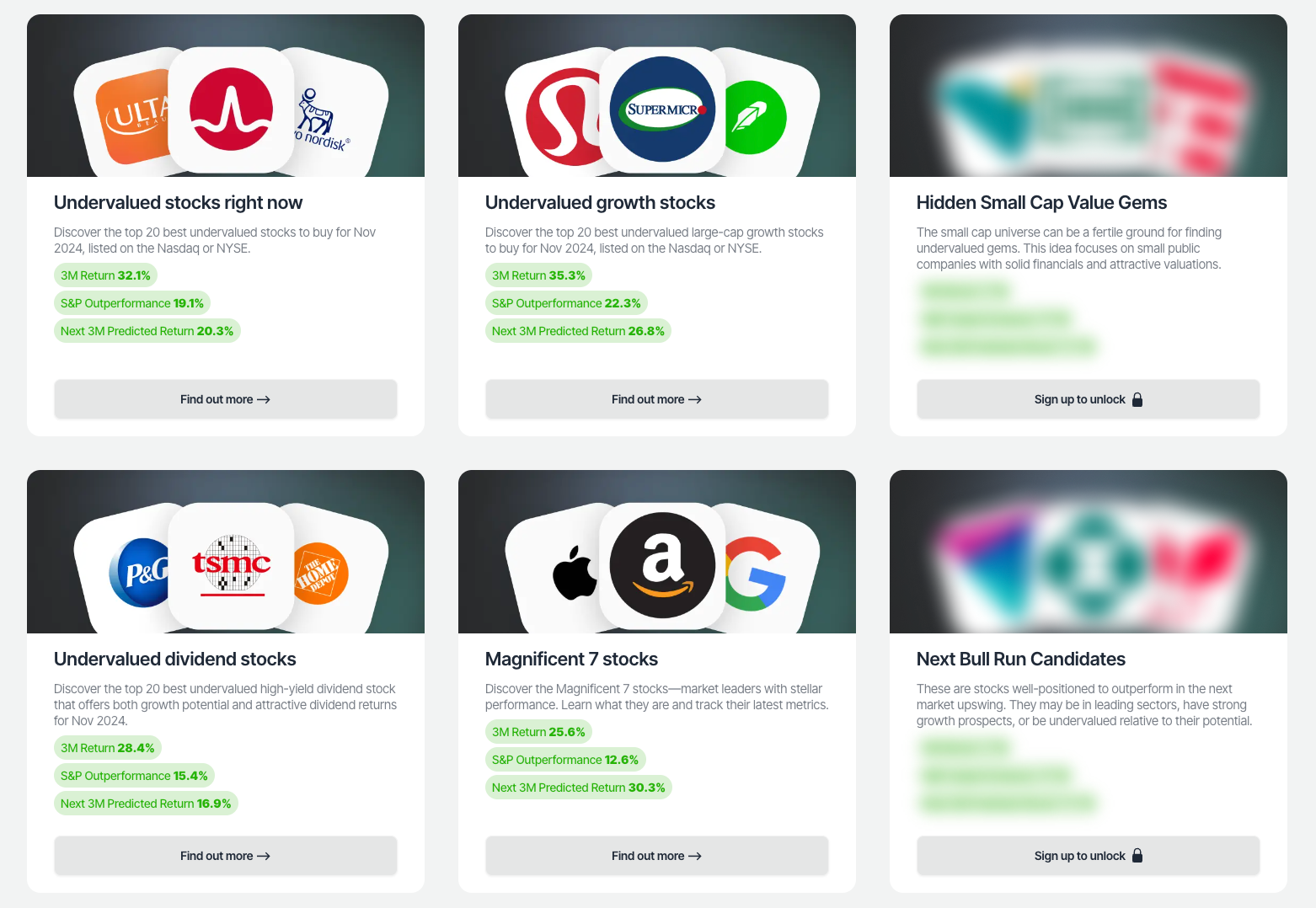How IONQ (IonQ) Makes Money in 2025: A Deep-Dive With Income Statement

Welcome to the Value Sense Blog, your resource for insights on the stock market! At Value Sense, we focus on intrinsic value tools and offer stock ideas with undervalued companies. Dive into our research products and learn more about our unique approach at valuesense.io
Explore diverse stock ideas covering technology, healthcare, and commodities sectors. Our insights are crafted to help investors spot opportunities in undervalued growth stocks, enhancing potential returns. Visit us to see evaluations and in-depth market research.
Understanding how a quantum computing innovator like IONQ makes money is essential for investors and anyone interested in the business of next-generation computing. In this post, we break down IONQ's quarterly income statement (Q2 2025) using a Sankey chart to visualize the financial flows — what comes in, where it goes, and what's left as profit.
Quick IONQ Overview
 Income Statement Overview](https://blog.valuesense.io/content/images/2025/10/IONQ_income_1761921078.png)
IONQ operates as a leading quantum computing company, developing trapped-ion quantum computers and providing quantum computing solutions via cloud platforms. Revenue comes primarily from quantum computing services, including cloud-based quantum computing access, research collaborations, and technology development partnerships. The company focuses on advancing quantum hardware and software, with business segments centered on quantum-as-a-service and research contracts.
Revenue Breakdown
- Total Revenue (Q2 2025): $20.7M (+81.8% YoY)
- Quantum Computing Services: $20.7M (100% of total)
- Growth is powered by increased enterprise adoption, expanded cloud partnerships, and higher demand for quantum research services.
Gross Profit and Margins
- Gross Profit: $1.75M (8.5% gross margin)
- Cost of Revenue: $18.9M (+90.8% YoY)
- IONQ maintains moderate margins due to the high costs of scaling quantum hardware and supporting R&D-intensive service delivery.
- Most costs come from hardware development, cloud infrastructure, and technical support for quantum computing services.
Operating Income and Expenses
- Operating Income: Not reported (operating loss implied due to high expenses)
- Operating Expenses: $148.2M (+194.2% YoY)
- R&D: $103.4M (+231.2% YoY, 499.5% of revenue) — Focused on advancing quantum hardware, error correction, and software stack development.
- SG&A: $44.9M (+133.9% YoY, 216.9% of revenue) — Includes sales, marketing, administrative, and business development costs.
- IONQ continues to prioritize innovation and invest in growth while expanding operations to capture future market share.
Net Income
- Pre-Tax Income: Not reported (driven by other income)
- Income Tax: Not reported
- Net Income: $176.8M (+370.8% YoY, 854.5% net margin)
- IONQ converts a significant portion of sales into profit this quarter due to large non-operating income, likely from one-time items or investment gains, rather than core operations.
What Drives IONQ's Money Machine?
- Quantum Computing Services: 100% of revenue comes from providing access to quantum computers via cloud and research contracts.
- R&D Investment: $103.4M invested in Q2 2025, representing nearly 500% of revenue, underscoring IONQ’s commitment to technological leadership.
- Strategic Partnerships: Ongoing collaborations with cloud providers and research institutions expand reach and drive adoption.
- Future Growth Areas: Commercial quantum applications and enterprise solutions, though not yet profitable, are expected to drive long-term revenue.
Visualizing IONQ's Financial Flows
The Sankey chart below visualizes how each dollar flows from gross revenue, through costs and expenses, down to net income. This helps investors spot where value is created, what areas weigh on profits, and how efficiently the company operates.
- Most revenue flows into gross profit, with operating expenses (especially R&D) taking the largest chunk.
- Even after significant costs and heavy R&D investment, a large net income is reported due to non-operating income, with net margin at 854.5%.
Key Takeaways
- IONQ's money comes overwhelmingly from quantum computing services and research contracts.
- High gross and net margins this quarter are driven by extraordinary non-operating income, not core business profitability.
- Heavy investment in R&D, balanced by efficiency in operating costs, positions IONQ for future growth.
- Ongoing growth is driven by enterprise adoption, cloud partnerships, and advances in quantum technology.
Explore More Investment Opportunities

For investors seeking undervalued companies with high fundamental quality, our analytics team provides curated stock lists:
📌 50 Undervalued Stocks (Best) overall value plays for 2025
📌 50 Undervalued Dividend Stocks (For income-focused investors)
📌 50 Undervalued Growth Stocks (High-growth potential with strong fundamentals)
🔍 Check out these stocks on the Value Sense platform for free!
FAQ About IONQ's Income Statement
1. What is the main source of IONQ's revenue in 2025?
IONQ generates over 100% of its revenue from quantum computing services, including cloud-based access to quantum computers and research contracts. No other revenue segments were reported for Q2 2025.
2. How profitable is IONQ in Q2 2025?
IONQ reported net income of $176.8M in Q2 2025, with a net margin of approximately 854.5%, reflecting extraordinary profitability driven by non-operating income, not by core business operations.
3. What are the largest expense categories for IONQ?
The biggest expenses on IONQ's income statement are operating expenses, particularly Research & Development (R&D) at $103.4M in Q2 2025, as IONQ prioritizes quantum hardware and software innovation. SG&A costs were $44.9M.
4. Why does the core quantum computing segment operate at a loss?
The core quantum computing segment, despite generating $20.7M in revenue, posted an operating loss due to aggressive investment in R&D and business expansion, as IONQ believes these will drive long-term growth—even if the division is unprofitable today.
5. How does IONQ's effective tax rate compare to previous years?
IONQ's effective tax rate for Q2 2025 was not reported. Historically, the company’s tax rate has fluctuated due to factors such as non-operating income, tax benefits from share-based compensation, and international structuring.
